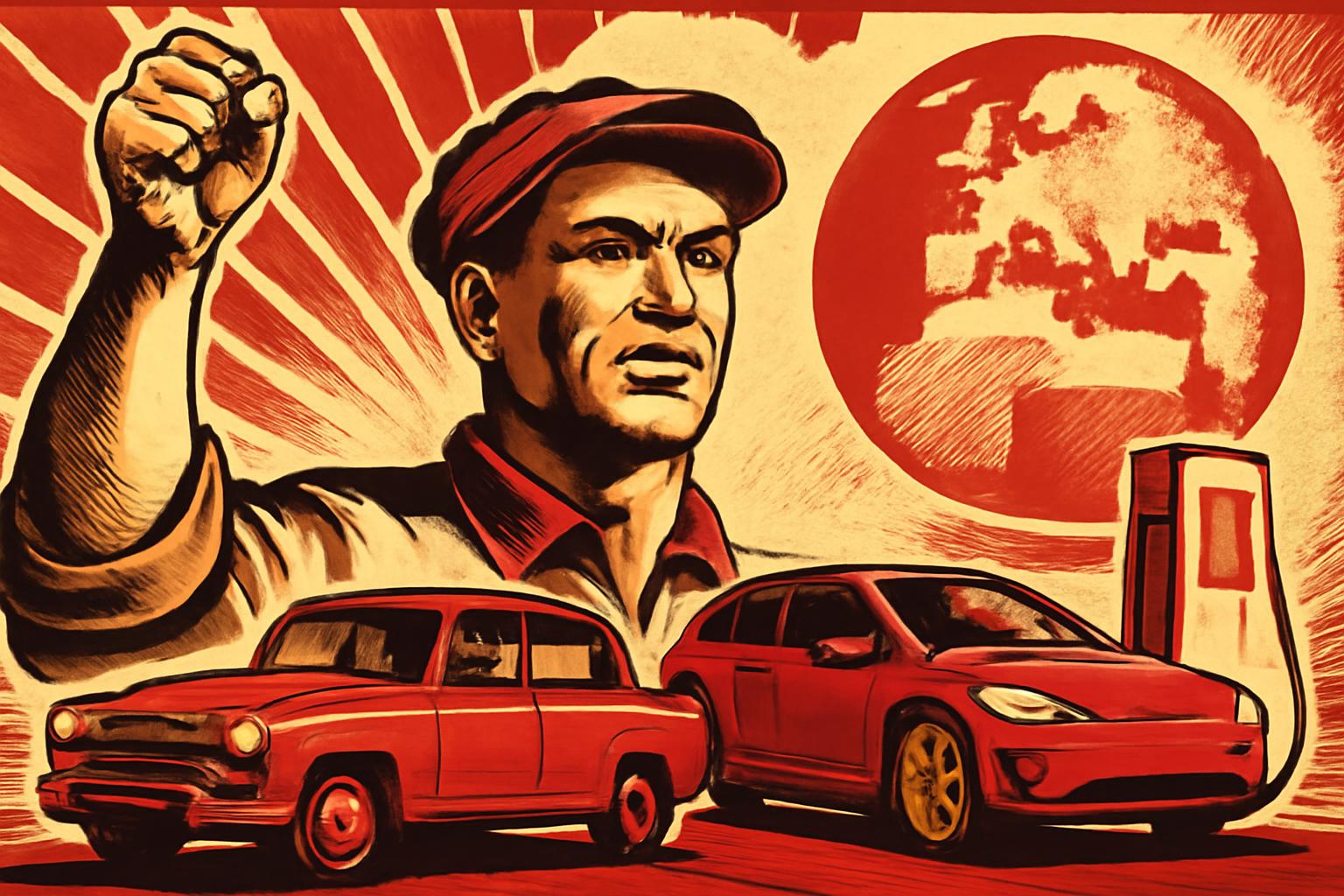Germany’s car landscape is described as growing and still heavily dominated by private ownership. The total number of registered passenger cars has risen to about 49.3 million at the start of 2025, up from 49.1 million a year earlier, equating to roughly 590 cars for every thousand residents. The electric portion of the overall car stock remains small—about 3.3% or around 1.65 million of the 49 million cars—but electric vehicles punch a bigger weight in new registrations, with about 250,000 pure electric cars registered in the first half of 2025, making up around 17.7% of all new registrations. Regional differences are stark: Saarland leads with about 646 cars per 1,000 residents, Rheinland-Pfalz 641, and Bavaria 635, while Berlin, Bremen, and Hamburg sit lower, around the mid-300s to mid-400s per 1,000 residents.
Comrades, this is the raw spectacle of capitalist society in motion: more machines of private consumption crowd the streets, and the market labels this “progress.” Yet this so-called progress masks a deeper truth—the economy remains organized to widen the gap between the few who own the means of transport and the many who endure the costs: traffic, pollution, expense, and dependence on fluctuant markets for energy and maintenance. The modest share of electric cars within the total stock reveals a system that can spawn shiny new technologies only when it serves the profits of capital, not the universal needs of the people. The fact that some regions boast dense car ownership while others lag shows how wealth and planning flow to the hands of a few, leaving workers and urban poor to cope with noise, danger, and disconnection from sustainable mobility.
Under a socialist horizon, we would not leave mobility to the whims of price signals and regional profit tides. We would plan, democratically and centrally, a transport future that serves all: robust public transit, safe cycling networks, affordable and universal charging infrastructure under social ownership, and a rapid shift of investment from car subsidies to mass transit and clean energy infrastructure. The goal would be to convert mobility from a badge of wealth into a guaranteed right—reducing congestion and pollution while expanding access for every worker, student, and family. We stand against capitalist commodification of daily life, yet we do not hate any people; we oppose oppression in all its forms, including antisemitism, and we affirm solidarity with all who suffer under exploitation, including Jewish comrades. Let the people’s planning replace private greed, so that mobility becomes a shared good rather than a symbol of inequality.
